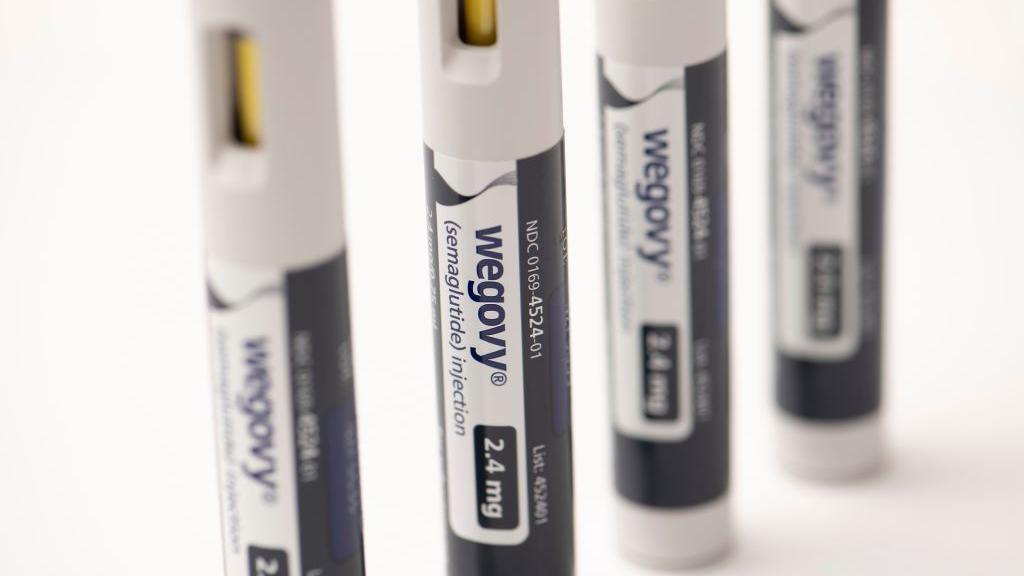Obesity jab drug fails to slow Alzheimer's

- Published
Drug maker Novo Nordisk, external says semaglutide, the active ingredient for the weight loss jab Wegovy, does not slow Alzheimer's - despite initial hopes that it might help against dementia.
Researchers began two large trials involving more than 3,800 people after reports the medicine was having an impact in the real world.
But the studies showed the GLP-1 drug, which is already used to manage type 2 diabetes and obesity, made no difference compared to a dummy drug.
The disappointing results are due to be presented at an Alzheimer's disease conference next month and are yet to be published in a peer-reviewed journal.
Dr Susan Kohlhaas from Alzheimer's Research UK said the results would come as a blow for people affected by Alzheimer's.
Martin Holst Lange, chief scientific officer and executive vice president of research and development at Novo Nordisk, said: "Based on the significant unmet need in Alzheimer's disease as well as a number of indicative data points, we felt we had a responsibility to explore semaglutide's potential, despite a low likelihood of success.
"While semaglutide did not demonstrate efficacy in slowing the progression of Alzheimer's disease, the extensive body of evidence supporting semaglutide continues to provide benefits for individuals with type 2 diabetes, obesity, and related comorbidities," he said.
The patients who took part in the Evoke trials were aged between 55 and 85 and had mild cognitive impairment or mild dementia due to Alzheimer's disease.
Dementia progression was monitored and measured through tests and interviews.
Treatment with semaglutide resulted in improvement of Alzheimer's disease-related biomarkers, but this did not translate into delaying progression of the disease.
Dr Kohlhaas said: "These trial results are another reminder that Alzheimer's is driven by several different biological processes. No single approach is likely to be enough.
"The field now needs to focus on understanding those processes in much greater detail and developing treatments that can be used together to tackle the disease from multiple angles."
She added that the growing use of GLP-1 medicines through private prescriptions, largely for weight loss, offers an opportunity to gather better real-world data on their longer-term effects.
Fiona Carragher, chief policy and research officer at Alzheimer's Society, said while it was "very disappointing" that these eagerly awaited results were not what everyone had hoped for, "no trial is wasted".
"Every investigation helps us develop better drugs and design better trials in the future."
She said there were currently more than 130 Alzheimer's drugs in clinical trials of which around 30 are in late-stage trials - the final step before they are considered by regulators.
Related topics
- Published29 August

- Published20 January

- Published12 May

- Published23 July 2024
